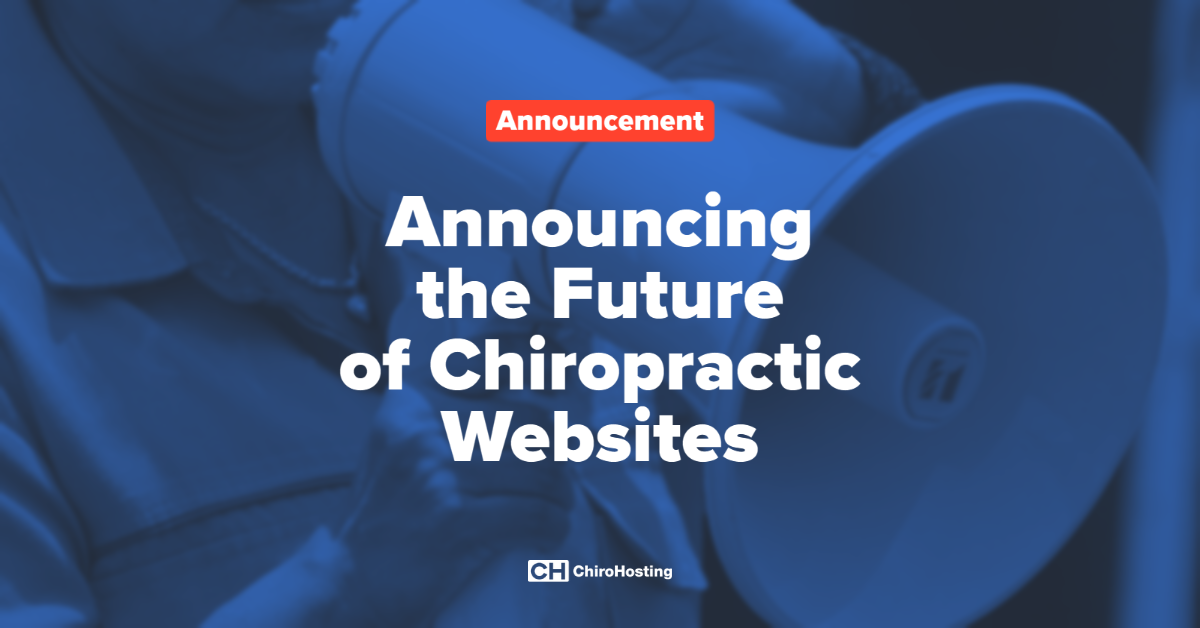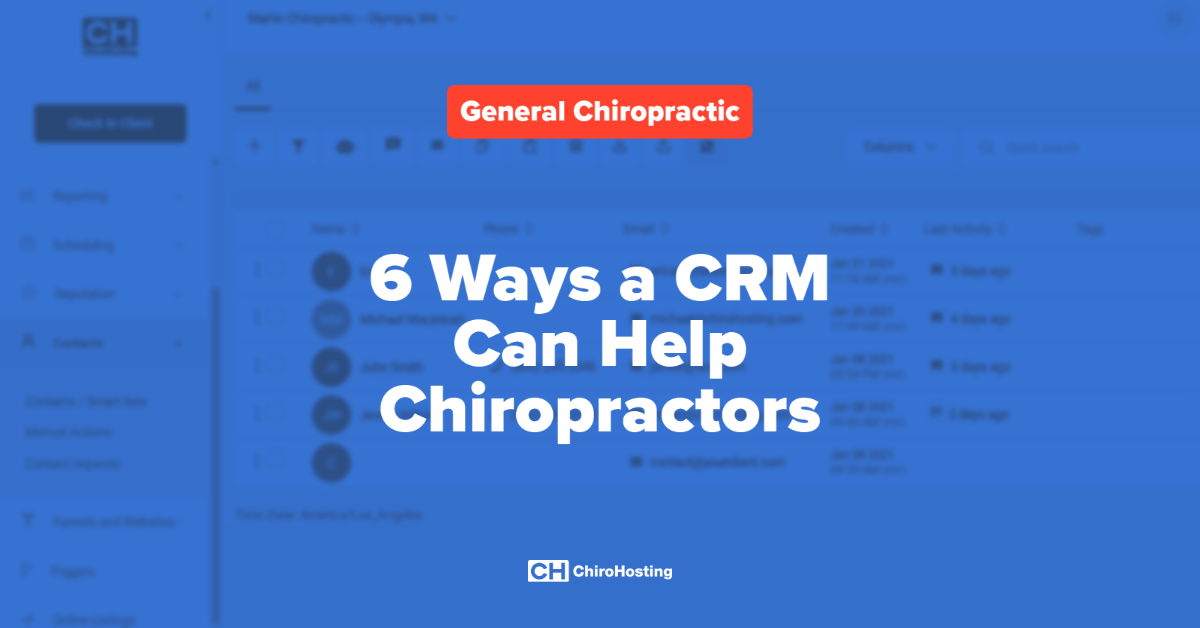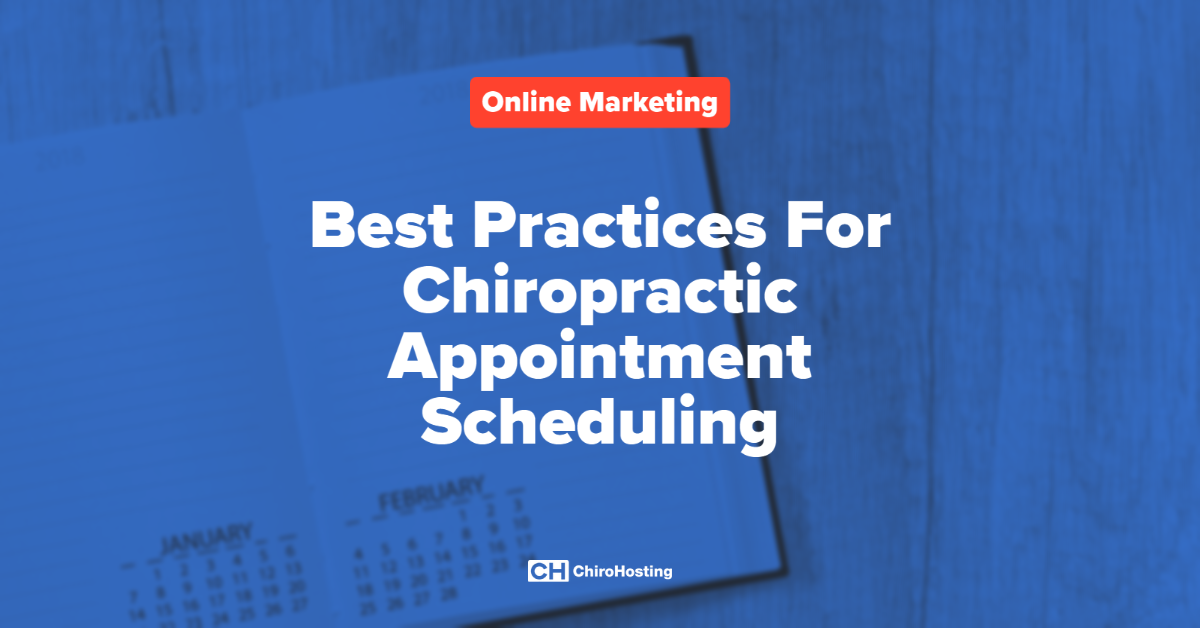
As a chiropractor, you should be using a Customer Relationship Management (CRM) system. In this blog post, we’re going to look at 6 ways a CRM can help you.
Let’s start with a definition of what a Customer Relationship Management system is. According to Salesforce, a CRM is:
Customer relationship management (CRM) is a technology for managing all your company's relationships and interactions with customers and potential customers.
A CRM system is a great tool for any chiropractic practice to use, but it’s not designed to replace your Electronic Health Records (EHR) system. Rather it’s a great complement to an EHR.
1. A CRM can help you store, manage and organize data in a centralized location
Where does your patient data live? What sort of information do you keep track of for your patients and prospective patients?
A CRM will be the place where your patient data can live. CRMs are capable of storing multiple contact details in something known as fields or tags. You can search your CRM to find a specific contact record and see all the information associated with that person. Or you can easily run reports based on certain fields to create custom lists of contacts that you can view for sales and marketing purposes.
However, one very important factor to keep in mind as you select a CRM for your practice is that you’ll want to choose one that is HIPAA compliant so that your patient data will be safe.
2. A CRM can help you consolidate systems
Many chiropractors use a mix of different systems and/or paper-based record-keeping systems. Doctors might use a different system for email marketing, then another one for appointment reminders, and a separate one to manage their calendar. With a good CRM system, you should be able to consolidate all of these processes into one system.
3. A CRM can help you manage communication
A good CRM can help you manage communication with your prospective and current patients. It can let you manage communication in a few ways:
- Via email marketing - You can use your CRM to send emails to distribution lists that you also create in your CRM based on specific contact attributes like if they’re a current patient, if they haven’t had an appointment in a certain amount of time, their job titles, and much more.
- Via nurture campaigns - You can use your CRM to place contacts onto a nurture stream to send them emails and text messages in a pre-defined stream.
- Via direct messaging - you can communicate directly with a contact by going to their contact record in your CRM.
4. A CRM can help you understand your sales pipeline
A CRM can help you understand your sales pipeline through the use of setting lead stages and creating sales opportunities. Understanding your sales pipeline can help you grow your business.
Once you understand your funnel and the different steps of your sales process, then you can measure how you’re performing at each stage. This will help you develop sales and marketing strategies to help you boost your performance. You can read more about managing your sales pipeline in this blog post.
5. A CRM can help you manage your calendar
Many CRMs today come with some sort of calendar functionality built-in. Look for a CRM that also has scheduling so that you can manage your patient appointments in one place. This will also allow you to send out appointment reminders, check patients into their appointments, and much more.
6. A CRM can help you get new patients
Not only is a CRM a great tool for existing patients, but a robust one will also be able to help you attract new patients. How? Well, good CRMs have the functionality to create forms, marketing landing pages, nurture leads, and run email marketing campaigns. Some CRMs even integrate with advertising platforms so you can run and track promotional campaigns.
If you’re interested in getting a CRM for the first time or upgrading your current platform, send us an email at support@chirohosting.com. We’d be happy to discuss your needs and see if our CRM platform is a good fit for you.
















